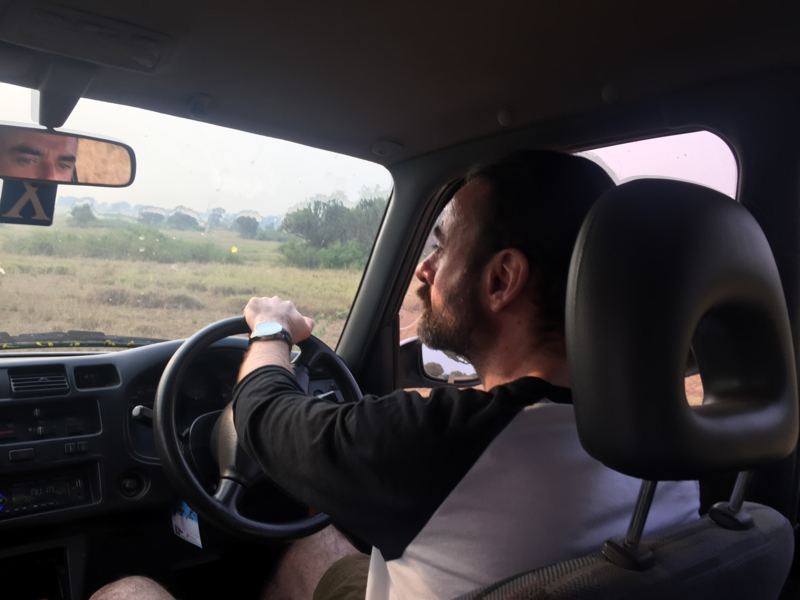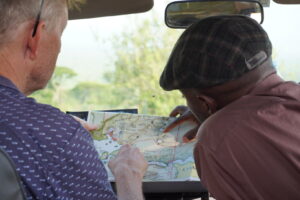Essential Tips for Renting a Car in Kenya In 2025/26

Kenya is a land of breathtaking landscapes, diverse wildlife, and vibrant cultures. While public transport options are available, renting a car offers the freedom and flexibility to explore at your own pace, whether you’re embarking on a safari adventure or navigating the bustling city streets. However, for a smooth and safe journey, it’s crucial to be well-prepared. This in-depth guide covers the essential aspects of renting a car in Kenya in 2025 & 2026, from the necessary paperwork to understanding insurance and mastering defensive driving techniques.

Part 1: Documents and Requirements – Your Key to the Road
Before you even step foot in a rental office, ensure you have all the necessary documentation. Rental companies in Kenya have specific requirements, and being prepared will save you time and potential hassle.
- Valid Driver’s License: For foreign visitors, a valid driver’s license from your home country is generally accepted for up to a year. While not always mandatory, an International Driving Permit (IDP) is highly recommended, especially if your license is not in English. It serves as an official translation and can be very helpful in the event of an encounter with law enforcement. For Kenyan residents, a valid Kenyan driver’s license is required.
- Proof of Identity: A valid passport is essential for foreigners, while Kenyan citizens will need their National Identity Card. Some rental agencies may also ask for a secondary form of identification, like a work ID or a utility bill to confirm your address.
- Age and Experience Restrictions: Most car rental companies in Kenya require the driver to be between the ages of 23 and 75. You’ll also need to have held your driver’s license for a minimum period, typically two to three years. Younger drivers may be subject to a surcharge.
- Payment and Security Deposit: A major credit card is usually required for both the payment and the security deposit. The deposit amount can vary significantly depending on the vehicle type and rental duration. It’s a refundable amount held on your card to cover potential damages or breaches of the rental agreement.
- Rental Agreement: Read the car rental agreement carefully before you sign. Pay close attention to clauses about mileage limits, fuel policy (full-to-full is common), and any additional fees for extra drivers or accessories like a GPS or child seat. It’s also vital to inspect the car for any existing damage and ensure it is documented in the agreement to avoid being charged for pre-existing issues.
Part 2: Understanding Car Rental Insurance in Kenya
Navigating the world of car rental insurance can be confusing, but it’s a critical step for protecting yourself and the rental company. In Kenya, most rental vehicles come with basic insurance, but it’s important to understand the different types of coverage and what they entail.
- Collision Damage Waiver (CDW): This is the most common form of insurance provided by rental companies. It waives your financial responsibility for damage to the rental vehicle in the event of a collision. However, it’s crucial to note that CDW often has an “excess” or deductible, which is the amount you are liable for before the insurance kicks in.
- Theft Protection Insurance (TPI): This protects you from the financial loss if the rental car is stolen. Similar to CDW, TPI may have an excess that you are responsible for.
- Loss Damage Waiver (LDW): This is a combined package that includes both CDW and TPI. It’s often the standard, basic insurance offered with the rental.
- Super Collision Damage Waiver (SCDW): For travelers seeking complete peace of mind, an SCDW is a popular upgrade. It typically reduces the deductible to zero or a very low amount, meaning you are not liable for any excess payments in case of damage.
- Supplemental Liability Insurance (SLI): This provides additional coverage for liability claims, protecting you if you cause an accident that results in injury or damage to a third party’s property.
- Excess Liability Waiver: Many companies will offer you the option to purchase an “excess insurance” or “excess liability waiver” to avoid paying the excess deposit in the event of a claim. It’s a good idea to consider this, especially if you plan on driving long distances or on challenging roads.
Part 3: Defensive Driving in Kenya – Stay Safe on the Road
Kenya’s roads can present unique challenges, and a proactive, defensive driving approach is essential for a safe trip. Road safety is a significant concern in the country, with common hazards including unpredictable drivers, pedestrians, and livestock.
- Expect the Unexpected: In Kenya, it’s vital to assume that other drivers may not follow traffic rules. Be prepared for sudden lane changes without signaling, vehicles stopping abruptly, and pedestrians crossing at unexpected points.
- Maintain a Safe Following Distance: Tailgating is a common cause of accidents, especially in heavy traffic. Keep a minimum of a three-second gap between your vehicle and the one in front of you. Increase this distance on highways, in wet conditions, or at night.
- Be Aware of Road Conditions: While main highways are generally well-maintained, rural roads can be a different story. Be prepared for potholes, unpaved sections, and speed bumps (known locally as “rumble strips”). Always adjust your speed to the conditions of the road.
- Yield to Larger Vehicles: Trucks and buses, especially the public service vehicles known as “matatus,” can be aggressive drivers. It’s often safer to yield and let them pass to avoid confrontation and potential accidents.
- Night Driving: It’s generally advised to avoid driving at night, especially outside of major cities. Visibility can be poor, and you are more likely to encounter unlit vehicles, pedestrians, and animals on the road.
- Stay Focused and Alert: Avoid distractions like using your mobile phone or adjusting the radio while driving. Fatigue is a major risk factor, so take regular breaks, especially on long journeys.
By preparing the necessary documents, understanding your insurance options, and adopting a defensive driving mindset, you can confidently and safely navigate Kenya’s roads. With a little foresight, your car rental will be a gateway to an unforgettable adventure, allowing you to explore the country’s wonders on your own terms.
Are you planning to rent a car in Kenya for self drive adventure- then the above tips will help you enjoy a safe, comfortable and money-saving road trip. Get in touch with us to book a rental online by sending an email to info@rentadriverkenya.com or calling us on +256-700135510 to speak.




